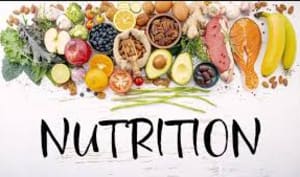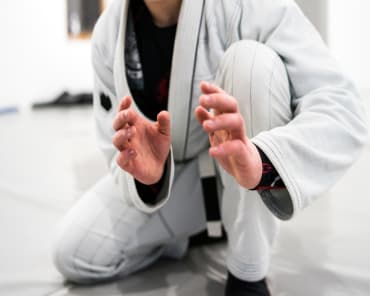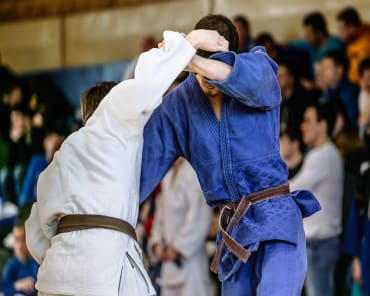
Diet and nutrition play a crucial role in enhancing performance and aiding recovery for Brazilian Jiu-Jitsu (BJJ) practitioners. Whether training for self-defense, competition, or personal fitness, what you eat directly affects your energy levels, endurance, and overall ability to perform on the mat. This guide explores the importance of proper nutrition in Jiu-Jitsu and how it can significantly impact training and recovery.
1. Fueling Performance
In Jiu-Jitsu, practitioners require sustained energy for rigorous training sessions that often include drills, sparring, and conditioning. The right nutrition helps fuel this energy demand, ensuring that athletes can train effectively and maintain focus. Key components of a performance-enhancing diet include:
Carbohydrates: As the primary source of energy for high-intensity activities, carbohydrates are essential for Jiu-Jitsu practitioners. Foods like whole grains, fruits, and vegetables provide the necessary glycogen stores needed for extended training sessions. A diet rich in complex carbohydrates can help sustain energy levels and improve overall performance.
Proteins: Proteins are vital for muscle repair and recovery. After intense training sessions, consuming adequate protein helps repair muscle fibers, facilitating growth and recovery. Good sources of protein include lean meats, fish, eggs, legumes, and dairy products. Athletes should aim to consume protein in meals and snacks throughout the day to support muscle health.
Fats: Healthy fats are essential for hormone regulation and overall health. Including sources like avocados, nuts, seeds, and olive oil can provide energy and support various bodily functions. While fats should be consumed in moderation, they play a role in long-term energy levels, especially during prolonged training sessions.
2. Hydration Matters
Staying hydrated is critical for optimal performance in Jiu-Jitsu. Dehydration can lead to decreased strength, endurance, and cognitive function, negatively impacting training and competition outcomes. Here are some hydration tips for practitioners:
Pre-Training: Drink plenty of water in the hours leading up to training. Aim for at least 16-20 ounces (about 500-600 ml) 2-3 hours before training and 8-10 ounces (about 250-300 ml) right before.
During Training: Sip water during breaks or between drills to maintain hydration levels. For longer training sessions or competitions, consider electrolyte drinks to replenish lost minerals.
Post-Training: Rehydrate after training to recover lost fluids. Consuming water and electrolytes can aid recovery and help prevent muscle cramps.
3. Timing Your Nutrition
The timing of meals and snacks can significantly influence performance and recovery. Here’s how to structure your nutrition around training sessions:
Pre-Training Meals: A balanced meal containing carbohydrates and protein should be consumed 2-3 hours before training. Examples include a bowl of oatmeal with fruit and nuts, or a chicken sandwich with whole-grain bread. This meal provides the energy needed for the upcoming session.
Post-Training Nutrition: After training, aim to consume a recovery meal or snack within 30-60 minutes. This meal should include a combination of carbohydrates and protein to replenish glycogen stores and promote muscle recovery. Options include a protein shake with a banana, yogurt with granola, or a turkey wrap with veggies.
4. Nutritional Strategies for Recovery
Recovery is a crucial aspect of training in Jiu-Jitsu, and nutrition plays a significant role. Following intense training sessions, the body requires the right nutrients to repair and rebuild muscle tissue. Here are some effective recovery strategies:
Anti-Inflammatory Foods: Incorporating foods that reduce inflammation can help speed up recovery. Foods rich in omega-3 fatty acids, such as fatty fish (salmon, mackerel), flaxseeds, and walnuts, as well as fruits and vegetables like berries, spinach, and kale, can contribute to faster recovery.
Adequate Sleep: While not directly related to diet, adequate sleep is vital for recovery. A well-balanced diet supports better sleep quality, while sleep helps the body recover and adapt to training.
Consistent Eating Habits: Maintaining a regular eating schedule can promote stable energy levels and aid recovery. Try to eat balanced meals throughout the day, incorporating protein, carbohydrates, and healthy fats.
5. Individual Considerations
Every athlete is unique, and dietary needs can vary based on individual goals, body composition, and training intensity. It’s essential for Jiu-Jitsu practitioners to listen to their bodies and make adjustments as needed. Working with a registered dietitian or nutritionist can provide personalized guidance tailored to specific needs.
Conclusion
Proper nutrition is a fundamental aspect of Jiu-Jitsu training that can enhance performance and support recovery. By fueling the body with the right balance of carbohydrates, proteins, and fats, practitioners can optimize their energy levels, improve endurance, and recover more effectively after training sessions. Staying hydrated, timing meals strategically, and incorporating recovery strategies into the nutrition plan will ensure that BJJ practitioners are at their best on and off the mat. Embracing these dietary principles can help individuals reach their goals in Jiu-Jitsu while promoting long-term health and wellness.






